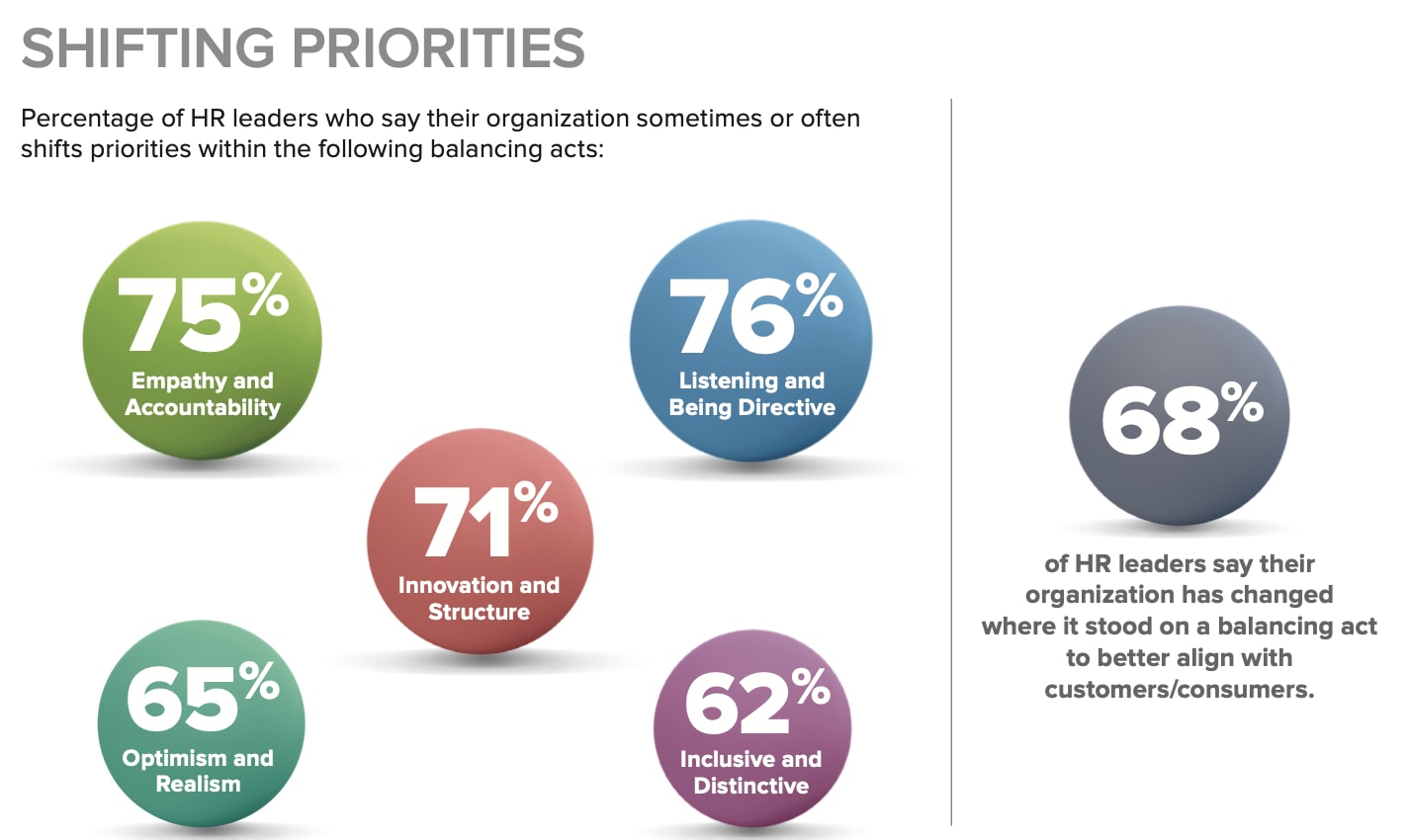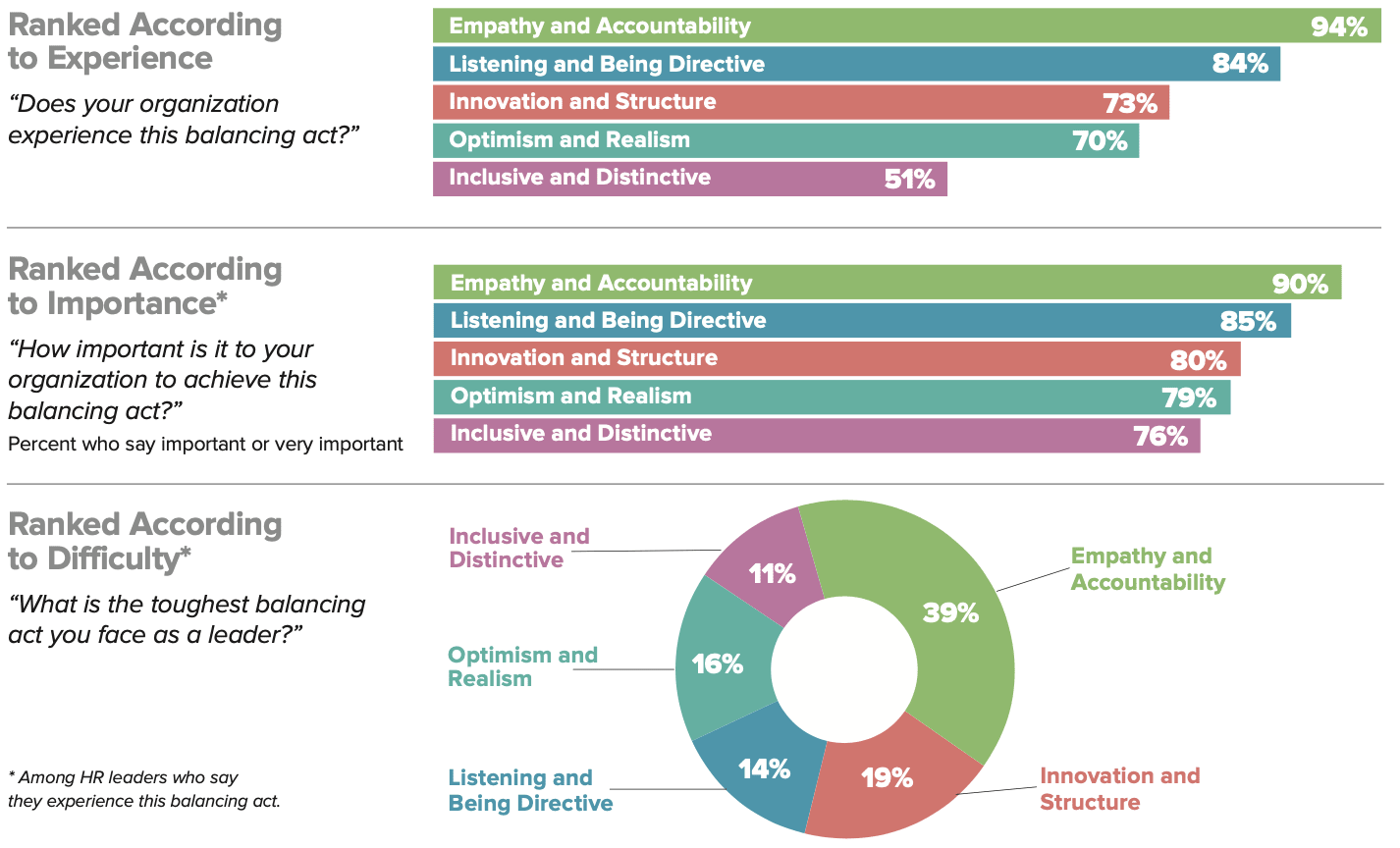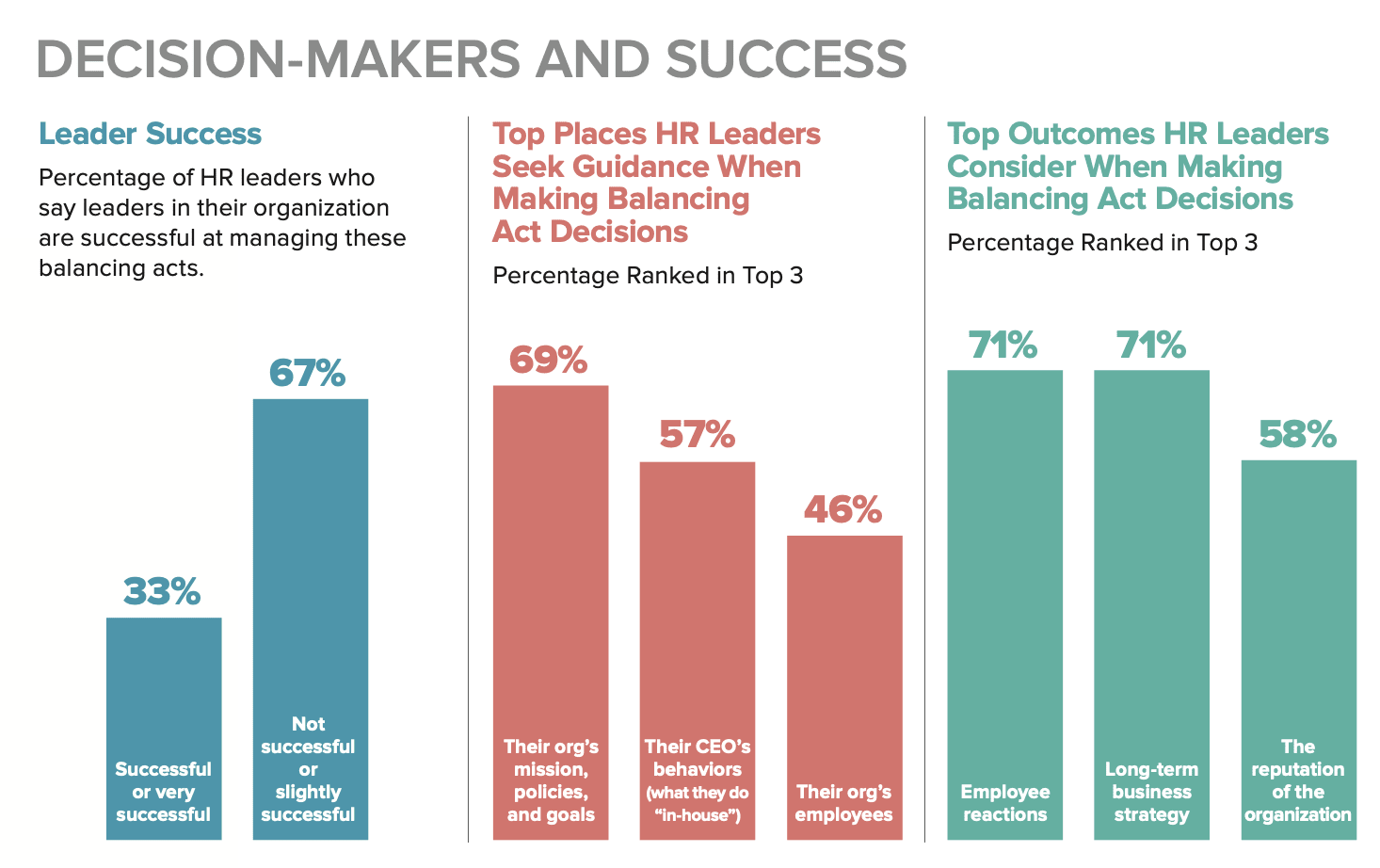
?The challenges facing businesses in the world of work have grown exponentially over the last decade and even more so since 2020, increasing the complexity of leadership.
Stakeholders expect leaders to maintain productivity and profitability, even amid a pandemic and economic crisis, all while accounting for employee well-being and the well-being of society as a whole. These challenges have necessitated the adoption of myriad distinct skills that leaders must actively embrace to be successful. However, this presents a challenge within itself because certain skills can feel more contradictory than compatible.
In a survey of 990 human resource leaders, the SHRM Research Institute sought to understand how leaders balance seemingly contradictory skills and what the implications are for leaders and organizations. The SHRM Research Institute found that organizations—and therefore leaders—must balance a) being empathetic while holding employees accountable, b) listening while being directive, c) fostering innovation while maintaining structure, d) being optimistic while being realistic, and e) fostering inclusivity while valuing distinctiveness within their workforces.

However, the SHRM Research Institute’s findings also illustrate that most leaders are not successful at balancing these skills. One reason for this may be that leaders are perceiving that they can exhibit only one skill or the other to be effective, an idea known as “Tyranny of the OR.”
In the seminal book Built to Last, management scholars Jim Collins and Jerry Porras explain how the “Tyranny of the OR” presents artificial constraints, holding leaders back from achieving greatness. Through their research, Collins and Porras found that great companies—those leading in their industries—have leaders thinking beyond these artificial constraints. Instead, these leaders embrace the “Genius of the AND.”
The “Genius of the AND” is consistent with the SHRM Research Institute’s findings regarding the importance and positive impact of balancing seemingly contradictory skill sets. Leaders today must actively embody both to be effective. Luckily, there are various ways of embracing the “and” when it comes to the critical skills that the SHRM Research Institute’s survey results highlight.
In the same study, the SHRM Research Institute found that the most difficult skills to balance are also the most important for an organization: empathy and accountability. For instance, empathy and accountability are crucial for employees to feel supported and motivated, which has implications for both performance and well-being. So, leaders have to get this balance right.

The pandemic highlighted the importance of this balance as organizations had to hold their workforces accountable for meeting strategic goals while also being sensitive to the significant disruptions in everyday life.
Randy Yu, CHRO of MISUMI, USA, demonstrated this balance between empathizing with the concerns of employees while also emphasizing accountability.
In an August 2022 interview with the SHRM Research Institute, Yu discussed how he and his company’s president “continually reinforced our message that employee safety and health is a top priority for us” while also having “set a tone from very early on that we wanted the work-from-home productivity and output and accessibility to be as if you were in the office.” Yu and his company did not choose empathy over accountability (or vice versa). Instead, they balanced both during times of turbulence, helping to enable their company’s resilience.
While not every leader will be responsible for steering an organization through a pandemic, most will encounter the need to balance empathy and accountability during day-to-day activities. In fact, these skill sets can be very complementary in a performance management context. For example, holding employees accountable for performance expectations is critical for their performance and development but can feel uncomfortable at times. Being empathetic can go a long way in helping employees cope with constructive feedback, making these conversations smoother for both parties.
As another example, although accountability is critical, it can go awry when employees feel like they are being held accountable for something outside of their control. Empathetic skills can help here, as well. Leaders can engage in empathy by taking the time to solicit employee perspectives and actively listening to them in a nonjudgmental way.
When seeking out employee perspectives, leaders may realize that an employee is hitting barriers to performance, such as getting buried in tedious tasks better handled through an updated process. Once this is known, the leader can remove the barrier. In turn, factors outside employees’ control can be identified and mitigated, increasing the perceived fairness of accountability conversations.
Consequently, both empathy and accountability are not only compatible, but also complementary, leadership skills.

Ultimately, great leaders—those who drive both performance and well-being—embrace and skillfully develop the “Genius of the AND.” These leaders acknowledge the fact that skills that may seem contradictory on the surface can actually be complementary. When doing so, more possibilities arise to not just meet but exceed the leadership expectations of today.
Katrina P. Merlini, Ragan Decker and Daroon Jilal are researchers at the SHRM Research Institute.

